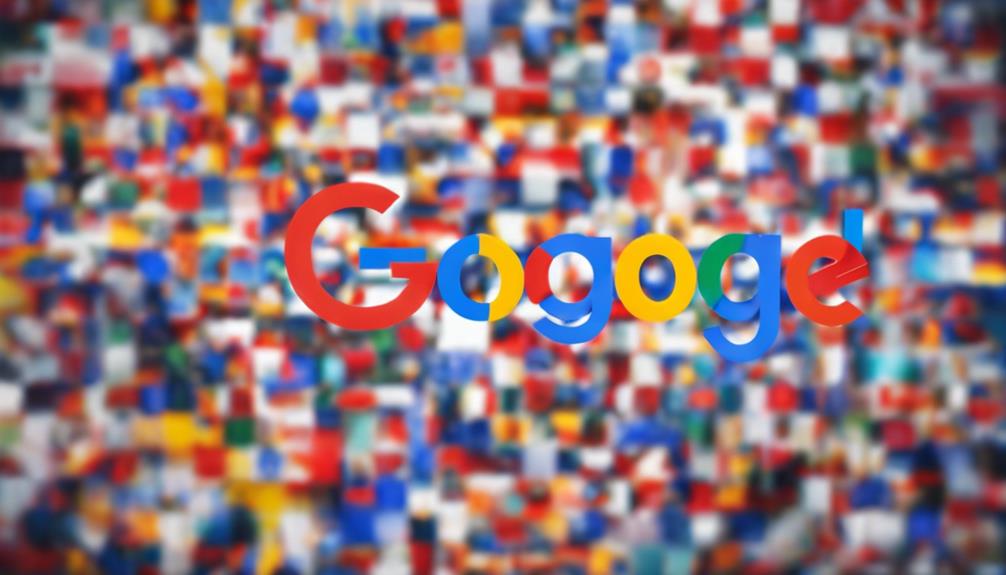In the realm of tech giants, Google stands as a monolithic figure, shaping the digital landscape in ways both profound and far-reaching. With a story that spans from humble beginnings to global dominance, Google's evolution encapsulates the very essence of innovation and adaptability in the digital age.
From its groundbreaking search engine to its forays into artificial intelligence and beyond, Google's impact reverberates across industries and societies worldwide. But what lies beneath the surface of this tech behemoth's success? The intricacies of Google's story hold a wealth of knowledge waiting to be uncovered, offering insight into its past, present, and future trajectory.
Google Story Overview

The Google Story Overview provides a comprehensive insight into the interactive and engaging format of Google Stories, designed to deliver information effectively through a blend of audio, images, and text. Google Stories, formerly known as AMP Stories, offer a video-first content format that consists of tappable pages engaging users with various styles such as first-person narratives, quizzes, and educational content. These stories are distributed across Google Search results, Discover, newsletters, and social media links, enhancing their reach and accessibility.
One of the key advantages of Google Stories is the ability for creators to monetize their content. By using tools such as AdSense, Ad Manager, display ads, and affiliate links, creators can generate revenue from their Google Stories. This monetization potential adds an extra incentive for creators to produce high-quality and engaging content within the Google Stories format, further enriching the platform's offerings.
Evolution of Google
With its humble beginnings as a search engine founded by Larry Page and Sergey Brin in September 1998, Google has undergone a remarkable evolution into a tech giant offering a diverse array of products and services. Initially established with the mission to organize the world's information and make it universally accessible and useful, Google's search engine has become the most widely used globally, processing over 5.4 billion searches daily.
Over the years, Google has expanded its offerings beyond search, introducing popular services like Gmail, YouTube, Android, and Google Maps. In a significant restructuring move in 2015, the company reorganized under Alphabet Inc., with Google maintaining its position as the largest subsidiary.
This evolution from a simple search engine to a multifaceted technology conglomerate highlights Google's ability to adapt, innovate, and meet the ever-changing demands of the digital world.
Google's Impact on Technology

Google's profound influence on technology is evident through its revolutionary innovations in search engines, digital advertising, and cloud computing. One of Google's most significant contributions is the Android operating system, which holds a dominant position in the global mobile market, powering billions of devices worldwide.
Additionally, Google's acquisition of YouTube in 2006 transformed the platform into the most popular video-sharing website on the internet, revolutionizing the way people consume and share video content.
Moreover, Google's advancements in artificial intelligence (AI) and machine learning technologies have had a profound impact on various industries, ranging from healthcare to self-driving cars. These technologies have enabled significant advancements in automation, data analysis, and personalized user experiences.
Furthermore, Google's commitment to sustainability is reflected in initiatives aimed at achieving carbon neutrality and investing in renewable energy projects, showcasing the company's dedication to leveraging technology for positive environmental impact.
Google's Founders and Beginnings
Having solidified its impact on technology through groundbreaking innovations, the inception of Google by Larry Page and Sergey Brin in September 1998 marked the beginning of a transformative journey in the digital sphere.
Originally named 'BackRub' in 1996, the search engine underwent a rebranding to become Google in 1997. Housed in a Menlo Park garage, the company received its initial funding from Andy Bechtolsheim, a co-founder of Sun Microsystems.
Google's core mission to organize the world's information and make it universally accessible and useful became the driving force behind its development. The introduction of the innovative PageRank algorithm revolutionized search engine technology, contributing significantly to Google's early success.
Larry Page and Sergey Brin's vision, coupled with their technical expertise, laid the foundation for what would eventually become one of the most influential and powerful companies in the digital era.
Google's Acquisition History

Google has strategically expanded its influence and technological capabilities through a series of notable acquisitions. In 2006, Google acquired YouTube for $1.65 billion, solidifying its position in the online video streaming market.
The tech giant made a significant move in 2012 by purchasing Motorola Mobility for $12.5 billion, aiming to enhance its mobile technology offerings.
Google further diversified its portfolio in 2014 with the acquisition of Nest Labs for $3.2 billion, marking its entry into the smart home market.
The following year, Google acquired Waze for $1.1 billion, integrating real-time traffic data into its popular Google Maps service.
In 2019, Google ventured into the wearable technology sector by acquiring Fitbit for $2.1 billion, signaling its commitment to innovation in the health and fitness industry.
Through these strategic acquisitions, Google has not only expanded its product range but also reinforced its position as a leading player in the tech industry.
Google's Innovation and Product Portfolio
How does Google continuously enhance its product portfolio through innovation and user-centric design principles?
Google's commitment to innovation is evident in its diverse product portfolio, which spans search, advertising, cloud computing, hardware, and software services. This commitment has led to the development of groundbreaking products such as Google Maps, Gmail, Chrome, and Android, shaping the way users interact with technology. Additionally, Google's strategic acquisitions of companies like YouTube, Nest, and Waze have not only expanded its product offerings but also extended its market reach.
Furthermore, Google's ecosystem seamlessly integrates various products like Google Drive, Google Photos, and Google Workspace, offering users a cohesive experience across multiple platforms. This user-centric approach, coupled with a relentless pursuit of innovation, drives Google to continually develop new products and services that cater to the evolving needs of its global user base. Google's emphasis on innovation and user satisfaction remains at the core of its product development strategy, ensuring that its portfolio remains at the forefront of technological advancement.
Google's Influence on Digital Marketing

With its ubiquitous presence in global internet searches and dominance in digital advertising platforms, Google significantly shapes the landscape of digital marketing. Over 90% of global internet searches are conducted on Google, making it a critical player in connecting businesses with their target audiences.
Google's advertising platforms, such as Google Ads, hold a substantial share of online ad revenue, providing businesses with effective tools to reach potential customers. Additionally, Google Analytics offers valuable insights by enabling businesses to track and analyze website traffic, user behavior, and the performance of marketing campaigns.
Google's search algorithms and updates continuously influence digital marketing strategies, necessitating businesses to adapt for better visibility and engagement. Various tools and services like Google My Business, Google Trends, and Google Search Console further contribute to enhancing online presence and optimizing digital marketing efforts, solidifying Google's influence in the digital marketing sphere.
Google's Future and Sustainability
Considering Google's substantial commitment to sustainability and future environmental goals, the company is actively working towards achieving 24/7 carbon-free energy for all its data centers and campuses by 2030. Google has set ambitious targets to operate solely on carbon-free energy by 2030 and to achieve zero waste by 2022. These efforts include investments in clean energy projects and the promotion of circular economy practices.
Notably, Google has been carbon neutral since 2007 by offsetting emissions and investing in renewable energy sources. The company's sustainability goals are in line with the Paris Agreement and are geared towards making significant reductions in its carbon footprint. Google's dedication to sustainability not only aligns with global environmental objectives but also sets a precedent for other corporations to prioritize eco-friendly practices in their operations.
Through these initiatives, Google is paving the way for a more sustainable and environmentally conscious future.
Google's Cultural Impact

Google's cultural impact resonates profoundly through its transformative products and services that have indelibly shaped modern society. The significant influence of Google is evident in its revolutionary advancements in information access, communication, and global connectivity.
By introducing innovative technologies and platforms, Google has redefined how individuals work, interact, and consume information in today's digital age. The company's impact extends across various domains, including search engines, online advertising, cloud computing, and artificial intelligence, setting new standards for technological development and integration.
Furthermore, Google's commitment to diversity, sustainability, and social responsibility underscores its cultural influence and core values, positioning the company as a leading force in driving positive change and inclusivity. Through its continuous evolution and dedication to innovation, Google continues to shape and enrich the cultural landscape, leaving a lasting imprint on society as a whole.
Frequently Asked Questions
What Do You Need to Know About Google Web Stories?
Google Web Stories provide an engaging, interactive format for content delivery. They incorporate multimedia elements like audio, images, and text to create a compelling storytelling experience. Creators can monetize their stories through ads and external links, expanding audience reach and engagement.
What Are the Best Practices for Google Stories?
Best practices for Google Stories include using short, immersive portrait mode videos, ensuring visibility of key components, limiting video length to 60 seconds, utilizing full bleed media, and prioritizing text legibility for optimal user engagement.
Can We Earn From Google Stories?
Yes, creators can earn from Google Stories through various monetization options like AdSense, Ad Manager, display ads, and affiliate links. By driving traffic to their websites and integrating ads within stories, creators can generate revenue and earn passive income.
What Is the Google Story Format?
The Google Story format is an interactive, visually engaging content format that combines audio, images, and text on tappable pages to create an immersive storytelling experience. It is versatile for various styles like narratives, educational content, quizzes, and polls.
Conclusion
In conclusion, Google Web Stories have revolutionized digital storytelling by providing a dynamic and interactive format for sharing information. Through captivating visuals, clear text, and interactive elements, creators can engage audiences and drive traffic to their websites.
As Google continues to innovate and expand its product portfolio, the impact of Google Web Stories on digital marketing and content creation is undeniable. Its influence on technology and culture will continue to shape the future of digital storytelling.

